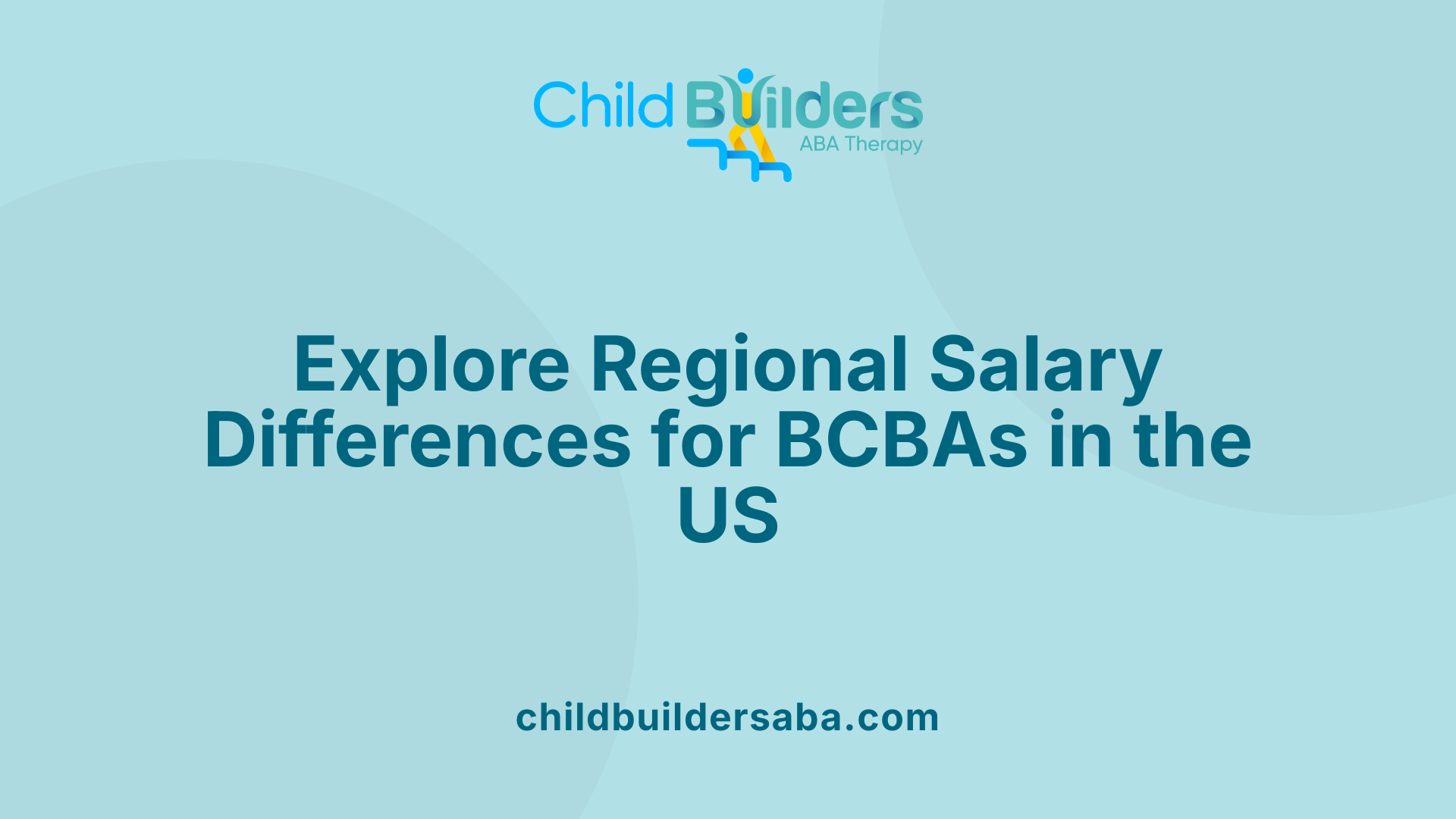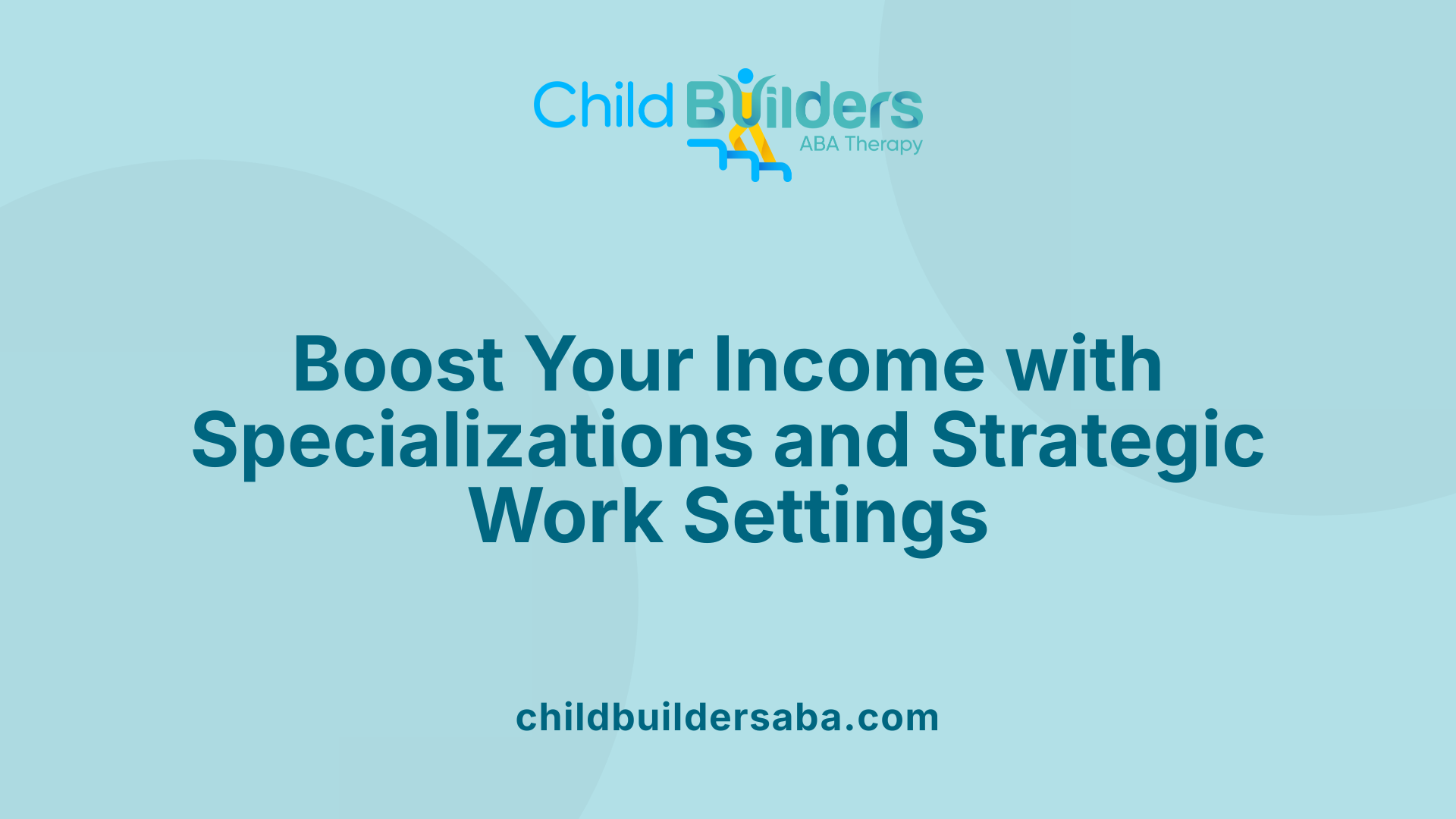Average BCBA Salaries

An In-Depth Look at BCBA Earning Potential and Market Trends
The field of behavior analysis, particularly for Board Certified Behavior Analysts (BCBAs), is experiencing rapid growth driven by increasing autism spectrum disorder diagnoses and expanding demand for ABA (Applied Behavior Analysis) services. As of mid-2023, the average BCBA salary in the United States reflects a dynamic market with significant regional and experience-based variations, positioning it as a lucrative and evolving career choice for many professionals.
Average Salary Overview and Regional Variations

What is the average salary for a BCBA in the US?
The typical annual salary for a Board Certified Behavior Analyst (BCBA) in the United States stands around $75,784, reflecting a broad spectrum that spans from entry-level roles at approximately $51,000 up to experienced professionals earning over $100,000. In high-demand markets such as Texas, experienced BCBAs can reach annual incomes of about $109,470, thanks to regional demand and cost of living adjustments.
The variation in salary depends heavily on geographic location, with major metropolitan areas offering higher compensation. For instance, cities like Houston, Dallas, and Austin are known for offering lucrative salaries compared to less urban areas, driven by demand for behavioral health services.
Overall, factors like experience, educational attainment, and employer type also influence earnings. Younger professionals just starting out tend to earn around $51,000 — though this can increase significantly with experience and advanced certifications.
What are the salary ranges for BCBA professionals?
Salaries for BCBAs fluctuate based on several factors, including experience, industry sector, and geographic region. Entry-level BCBAs typically earn around $51,000 annually, with the median in some areas around $84,229, especially in regions like Florida.
Mid-career BCBAs see salaries between $75,000 and $95,000, with top earners in certain states pushing over $125,000 in total compensation. Experienced professionals working in organizations such as private practices or high-demand states can command salaries up to $168,000.
On a broader scale, national salary ranges span approximately $62,858 to over $167,000, illustrating the considerable diversity based on individual circumstances.
How does experience level affect BCBA salaries?
Experience plays a crucial role in determining BCBA earnings. Starting professionals, with 1-4 years of experience, earn about $60,000 annually.
As BCBAs gain more expertise, their salaries typically increase. Those with 5-9 years may earn between $70,000 and $85,000, while seasoned practitioners with 10 to 19 years can expect earnings nearing $77,000 to $80,000.
Highly experienced BCBAs, especially in high-cost regions or with specialized skills, can surpass $100,000 — sometimes reaching $135,000 or more.
achieved through roles such as supervision, management, and consulting, which not only boost earning potential but also expand career opportunities.
What factors influence BCBA salary levels and earning potential?
Multiple elements contribute to salary variations among BCBAs. Geographic location is among the most significant — states like New Jersey, Connecticut, and Massachusetts have average salaries exceeding $80,000, with some cities in California pushing figures even higher.
Experience, educational level, and specialization also matter greatly. BCBAs with doctoral degrees or advanced certifications like BCaBA or RBT earn more, reflecting their increased expertise and responsibilities.
Industry sector is another factor; private practices, healthcare settings, and high-demand areas such as autism-focused clinics tend to offer higher salaries than non-profit organizations or educational roles.
Finally, work setting such as travel roles can enhance earnings, with professionals earning between $74,000 and $132,500 annually depending on workload and location.
What are the current salary trends and market fluctuations for BCBAs?
The ABA field is experiencing rapid growth, fueled by increasing autism diagnoses and expanding insurance coverage for behavioral therapies. Demand for BCBAs increased by 23% from 2021 to 2022, with a staggering 4,209% growth over the past decade.
This rising demand is reflected in salary increases, particularly in urban areas, where experienced BCBAs can command six-figure salaries. The median salary for top-tier roles continues to climb, with traveling BCBAs earning up to $132,500 yearly.
Market analysis suggests a steady upward trajectory, with an employment growth forecast of around 8% to 12% over the next decade. This indicates abundant opportunities for salary increases, especially for those developing niche skills or assuming leadership positions.
What are the high-paying areas or roles for BCBAs?
Roles with more responsibility or specialized skills tend to offer the highest pay. Leadership positions, such as behavior analyst directors or clinical behavioral directors, often earn over $100,000 annually. Senior-level BCBAs and university professors in behavioral analysis also see lucrative compensation, typically ranging from $84,000 to $88,000.
Traveling roles provide additional earning potential, with some BCBAs making up to $132,500 per year due to travel bonuses and per diem allowances. The highest salaries are concentrated in states like California, New York, and Massachusetts.
In summary, roles involving supervision, management, or specialized consulting usually attract premium pay, making them desirable pathways for BCBAs aiming to maximize their earning potential.
| Region/City | Average Salary | Range of Salaries | Notable Details |
|---|---|---|---|
| United States (average) | $75,784 | $51,000 - $120,000 | Varies based on experience & location |
| California (top cities) | $88,790 | $70,000 - $112,456 | High demand & cost of living |
| New Jersey | $98,707 | One of the highest state averages | |
| Texas (Houston/Dallas) | $109,470 | Higher salaries in urban centers | |
| High-paying roles | Over $150,000 | Leadership & specialized positions | Senior & executive roles |
This comprehensive overview highlights that while the national average BCBA salary is attractive, significant variation exists across regions and roles, emphasizing the importance of location, experience, and specialization in earning potential.
Educational Qualification, Industry, and Role Impact on Salary

How does experience level affect BCBA salaries?
Experience significantly influences the earning potential of Board-Certified Behavior Analysts (BCBAs). Entry-level BCBAs typically earn between $50,000 and $60,000 annually. With a few years of practice, salaries tend to rise to between $70,000 and $85,000. For professionals with over a decade of experience or those holding specialist roles, compensation often surpasses the $100,000 mark, especially in states with high demand like California, New York, and Massachusetts.
Advanced roles such as supervising other BCBAs or consulting can further increase salaries, sometimes exceeding $150,000 for top-tier specialists. Salaries are also affected by factors such as geographic location and type of work setting, with private practices and high-cost-of-living areas generally offering higher pay. As professionals gain experience and develop specialized skills, they position themselves for higher earnings—highlighting the importance of continuous professional development.
How does education influence BCBA salaries?
Educational background plays a pivotal role in determining salary levels for BCBAs. Those holding only a bachelor's degree can expect salaries in the vicinity of $60,000 to $70,000 annually. Earning a master's degree significantly boosts earning potential, with salaries often ranging from $70,000 to $90,000.
Professionals with doctoral qualifications, such as a PhD or PsyD, can command salaries from $90,000 up to $120,000 or more. Higher educational attainment not only opens doors to more advanced and specialized roles but also correlates with increased opportunities to lead projects, negotiate higher salaries, and secure positions in competitive markets.
In which industries do BCBAs earn the most?
Industry choice critically impacts BCBA earnings. Private practice is currently the most lucrative sector, with practitioners earning between $80,000 and $120,000 depending on experience and location. The healthcare industry also offers substantial salaries, generally between $70,000 and $100,000, especially within hospitals, clinics, and behavioral health services.
In the education sector, BCBAs usually earn between $65,000 and $90,000, while positions in non-profit organizations tend to pay slightly less, ranging from $60,000 to $80,000 annually.
| Industry | Typical Salary Range | Additional Notes |
|---|---|---|
| Private Practice | $80,000 - $120,000 | High demand, ability to set higher fees, entrepreneurial roles |
| Healthcare | $70,000 - $100,000 | Hospitals, clinics, mental health programs |
| Education | $65,000 - $90,000 | Schools, educational programs |
| Non-profit | $60,000 - $80,000 | Typically lower compensation, focus on community service |
Overall, choosing a high-paying industry like private practice or healthcare, paired with higher educational levels and experience, maximizes potential earnings for BCBAs. These factors, combined with regional economic conditions and workplace setting, create a complex landscape of salary opportunities within the behavioral analysis field.
Impact of Work Setting and Specialization on Earnings

How does experience level affect BCBA salaries?
Experience plays a crucial role in determining the earning potential of board-certified behavior analysts (BCBAs). Entry-level professionals, typically with less than four years of experience, generally earn between $50,000 and $60,000 annually. As BCBAs gain more experience, their salaries tend to rise. Mid-level professionals with between five and nine years of experience often earn from $60,000 to $80,000, while those with 10 to 19 years can see average salaries around $77,000. Highly experienced practitioners, especially those with over 20 years in the field, can command salaries exceeding $80,000, and in some cases, over $100,000.
Adding specialization, advanced certifications, or leadership roles enables BCBAs to boost their earning potential further. For example, senior positions such as behavior analyst directors can earn upwards of $100,000 annually. Location also influences salary; states like California, New York, and Massachusetts offer higher wages, especially in metropolitan areas. Overall, experience combined with credentials and geographic factors shapes the salary trajectory for BCBAs, with seasoned professionals typically earning significantly more than their entry-level counterparts.
Future Outlook and Earning Capacity within the Field

Can I make six figures as a BCBA?
Yes, reaching a six-figure income as a BCBA is achievable, especially for those with significant experience, specialized skills, or management responsibilities. While entry-level BCBAs typically earn between $50,000 and $60,000 annually, seasoned professionals in senior positions or private practices can earn over $100,000. Pursuing advanced qualifications, such as a PhD, or establishing your own practice also opens pathways to higher earnings. Positions like behavior analyst director can surpass the $100,000 mark, and some experienced BCBAs in urban, high-demand areas have reported earnings as high as $150,000 or more.
What is the employment growth forecast for BCBAs?
The demand for BCBAs has seen dramatic growth over recent years. Between 2010 and 2020, employment demand increased by over 4,209%! More recently, from 2021 to 2022, demand grew by 23%, highlighting a continually expanding job market.
This growth is driven primarily by increasing autism spectrum disorder diagnoses and broader acceptance of ABA therapy, which is a proven intervention. The Bureau of Labor Statistics projects an employment growth rate of around 8% to 12% over the next decade, faster than the average for many professions. This positive forecast indicates plentiful job opportunities across both clinical and consulting settings. It also suggests potential for career advancement, salary growth, and diversification into specialized or leadership roles.
What career pathways can lead to higher earning potential?
Advancing into management roles dramatically boosts earning potential. Positions such as behavior analyst director, clinical supervisor, or private practice owner frequently offer salaries over $100,000, depending on geographic location and scope of work.
Additional qualifications can also open doors. Earning a doctoral degree, such as a PhD in a related field, not only expands your expertise but can qualify you for university positions or high-level clinical roles. Specializations in areas like clinical behaviors, autism spectrum disorders, or neurodevelopmental disorders can further increase earning potential.
Furthermore, diversifying into consulting, working in high-income urban markets, or establishing private practices enhances income prospects. The growing scope of behavioral health services suggests that experienced, highly qualified BCBAs will see continued earnings growth. With the current demand trajectory, professionals who develop their skills and leadership abilities can expect long-term stability and upward mobility in their careers.
Navigating the Earnings Landscape in Behavior Analysis
The career of a BCBA offers promising financial rewards, with salary levels influenced by a complex interplay of experience, education, specialization, geographic location, and work setting. High-demand states and urban centers tend to pay more, and the growing field presents ample opportunities for career advancement and higher earnings. As the demand for ABA therapy continues to rise, so does the potential for BCBAs to earn competitive salaries—including the possibility of reaching six-figure incomes through strategic decisions, specialization, and leadership roles. For those committed to professional growth and geographic mobility, behavior analysis remains a lucrative and fulfilling career path.
References
- BCBA and ABA Salaries by State - Applied Behavior Analysis Degrees
- Board-Certified Behavior Analyst (BCBA) Salary Guide
- BCBA Salary by State | Flywheel Centers
- Average BCBA Salary By State - Autism Center of Excellence
- What State Pays BCBA the Most? - All Star ABA
- Board-Certified Behavior Analyst (BCBA) Salary Guide
- Board-Certified Behavior Analyst (BCBA) Salary Guide
- Allied Health Professions + Career Guides - Trusted Health

























.jpg)











































































